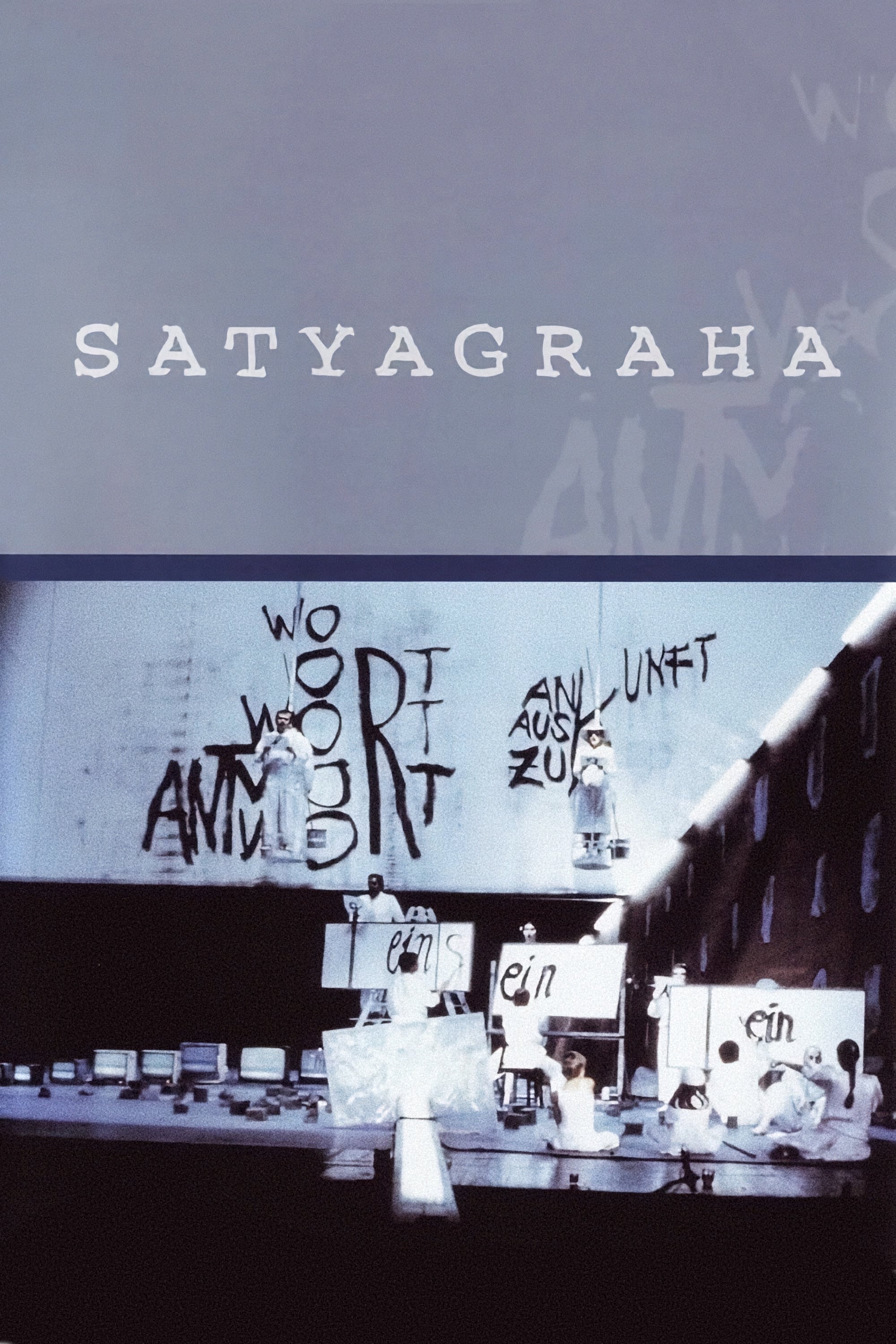
Info
Live recording from the Württembergisches Staatstheater Stuttgart, Großes Haus.
Staatsoper Stuttgart (Dennis Russell Davies, Conductor).
Libretto by Philip Glass & Constance DeJong.
A ZDF-RM ARTS Co-Production in association with Channel Four Television, U.K., Licensed worldwide by RM Associates.
Cast
Gandhi 2: Ralf Harster.
Gandhi 3: Helmut Danninger.
Schlesen, Ghandi’S Secretary: Inga Nielsen.
Kasturbai, Gandhi’S Wife: Elke Estlinbaum.
European Aides: Wolfgang Probst, Kimmo Lappalainen.
Indian Aides: Daniel Bonilla, Melinda Liebermann.
Mrs. Alexander, Wife Of The Chief Of Police: Helga Merkl-Freivogel.
Krishna: Karl-Friedrich Dürr.
Arjuna: Helmut Holzapfel.
Tolstoy, Tagore: Georg Greiwe.
Dancer: Annette Holoch.
Bathers: Thorsten Kreissig, Annette Holoch.
Child Playing with Ball: Harry Brandel.
Barkeeper: Klaus Schultheiss.
Credits
Scenario by Achim Freyer.
Based on an original scenario by Philip Glass and Constance De Jong.
Set and Costumes Designed by Achim Freyer.
Directed by Hugo Käch.
Executive Producer and Audio Director: Joachim Augustin.
Produced by Achim Freyer.
Video Editing: Heidi Bohm, Klaus Oetzel, Holger Wieland.
Camera: Michael Donecker, Bernd Udo Herzmann, Henning Juhl, Gisela Loew, Gunter Mohn.
Notes
Glass and Constance de Jong put together the libretto based on the ancient Indian didactic poem Bhagavadgita (the “Song of the Blessed One” dating back to the 4th/3rd century B.C.), which Gandhi often quoted, and Gandhi’s biography. There is no plot; the audience is only given a vague sense of the historical facts which are overlaid by philosophical and political statements, interjected parables and the recital of the sacred Sanskrit text. The opera, a product of the rebellious spirit of the late sixties and the step forward towards a multicultural and multireligious society, was commissioned by the City of Rotterdam and performed there as a production of the Nederlands Opera.
The performance went on tour and was also staged in New York. However, the ingeniously illustrated Stuttgart production by Achim Freyer in 1981 set all new standards. It was part of a Glass trilogy shown there in 1990 with Einstein on the Beach and the opera Akhnaten, which had its grand premiere in Stuttgart. All of these works were performed under the musical direction of Dennis Russell Davies.
In the scope of a traditional orchestra, Glass used a large string section for the first time in Satyagraha. His typically repetitive musical structures impart the music with a unique, definitely non-illustrative dimension and mirror the rhythm and melody of Hindu prayers.
Related
Satyagraha on Sony Masterworks
COMPOSITIONS:
Satyagraha
BOOKS:
Music by Philip Glass by Philip Glass
Satyagraha by Constance DeJong and Philip Glass
Sakrales Musiktheater im 20. Jahrhundert: Eine Studie zur Oper “Satyagraha” von Philip Glass. by Michael Altmann
